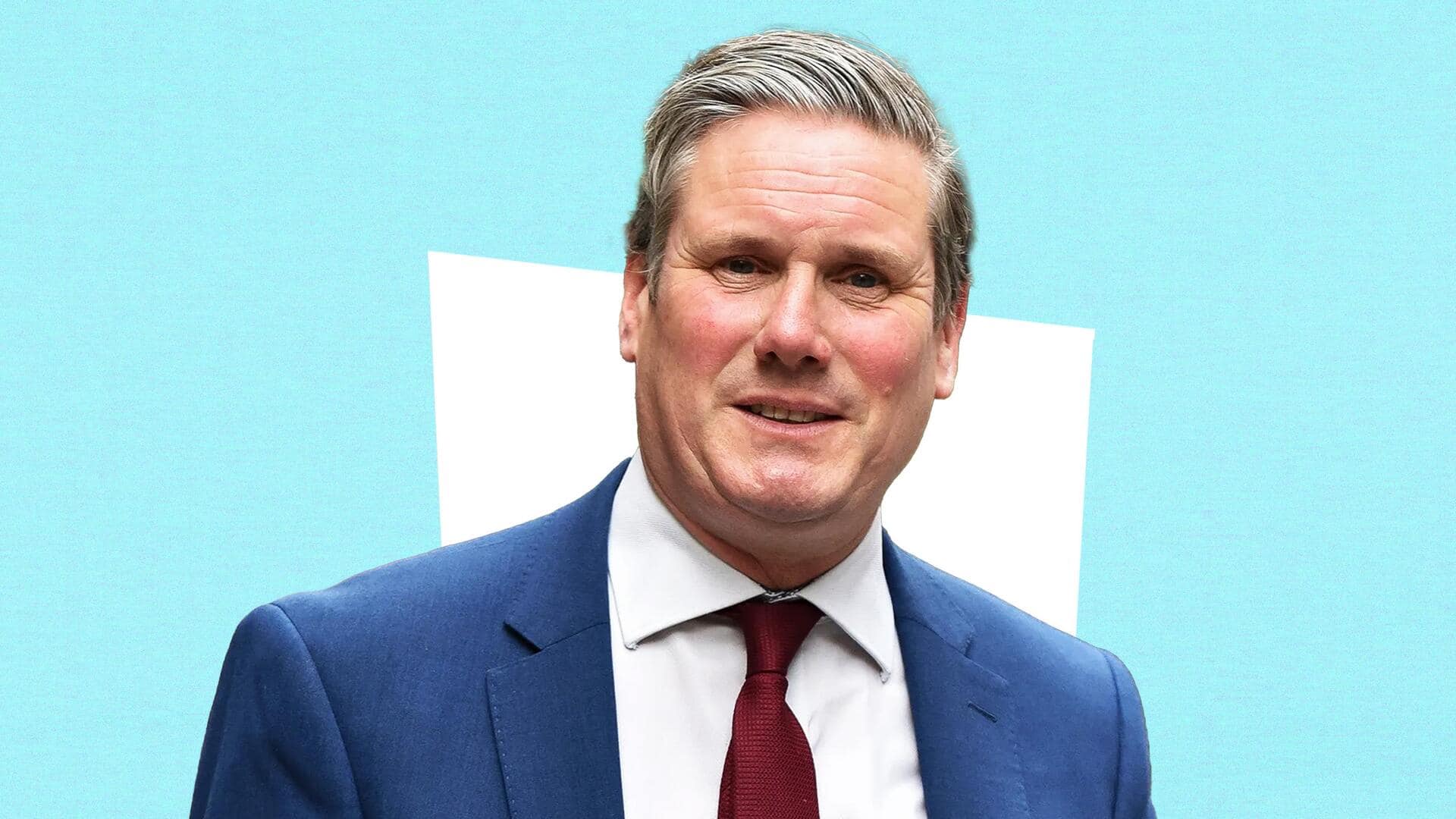
What Keir Starmer's poll win means for UK-India relations
What's the story
Britain's Labour Party swept to power on Friday after over a decade in opposition—marking the party's return to government less than five years after its worst defeat in nearly a century. Labour leader Sir Keir Starmer will officially assume the role of prime minister later today. He will take charge at 10 Downing Street just hours after the votes are counted, with Conservative leader Rishi Sunak making a quick exit. Let's take a look at what it means for India.
Foreign policy
Starmer's vision for UK-India relations
Notably, Starmer's foreign policy agenda includes a focus on enhancing United Kingdom-India relations. Acknowledging "past mistakes," such as the Labour Party's stance on issues like Kashmir, Starmer is committed to establishing a "new strategic partnership" with India. His dedication to a free trade agreement (FTA) and increased bilateral cooperation in areas like technology, security, education, and climate change underscores his intent to strengthen ties with one of the world's fastest-growing economies.
Community engagement
Starmer's outreach to British-Indian communities
Starmer's manifesto also included a pledge to pursue the "new strategic partnership" with India, with a particular emphasis on the trade agreement. In an effort to mend strained relations with the Indian diaspora in the UK, he denounced "Hinduphobia" and celebrated cultural festivals like Diwali and Holi during his campaign.
Policy obstacles
Potential challenges to Starmer's foreign policy goals
Starmer's ambitious foreign policy objectives may face potential hurdles, particularly concerning immigration policies and trade agreements, several reports have suggested. Given the bipartisan agreement on reducing immigration, negotiations on temporary visas for Indian workers in the UK service industry represent a delicate balancing act for the Labour Party.
Foriegn policy
Labour Party's foreign policy of 'progressive realism'
Separately, Labour Party, out of power since 2010, has committed to a foreign policy of "progressive realism," acknowledging a more volatile world "as it is, not as we would want it to be," according to David Lammy, who is expected to become the next foreign secretary. The party has also promised to "make Brexit work" and pursue "an ambitious" security agreement with the European Union.